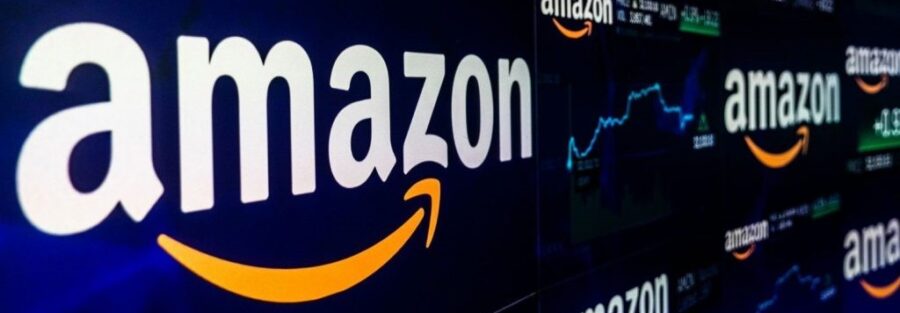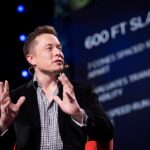Amazon.com and IKEA, along with around three dozen other companies that rely on ocean freight, will open bidding in January, inviting shipping firms to compete for contracts to transport their cargo on vessels powered by near-zero emissions e-fuels like e-methanol.
This collective, known as the Zero Emissions Maritime Buyers Alliance, aims to leverage the combined influence of its members, who are committed to meeting their own climate targets, to drive demand for e-fuels produced using renewable electricity and carbon dioxide, a resource that remains scarce.
The alliance seeks to expedite the ocean shipping sector’s transition to net-zero greenhouse gas (GHG) emissions by 2050. This effort comes as the U.S. President-elect, Donald Trump, is expected to withdraw from international climate change agreements.
Currently responsible for over 80% of global trade transport, the world’s shipping fleet contributes about 3% of global GHG emissions. The alliance emphasizes that e-fuels are essential for fully decarbonizing ocean shipping due to their long-term potential to compete with fossil fuels in terms of both cost and availability.
“This approach puts us on a clear path toward net-zero emissions,” said alliance member Carl Berger, who oversees sustainability and export operations at Amazon Global Logistics.
The alliance’s e-fuel transport contracts are anticipated to start between 2027 and 2030, with contract durations ranging from three to five years.
The cargo volume covered by these contracts is projected to be equivalent to transporting at least 1.4 million 20-foot containers from Shanghai to Los Angeles, potentially reducing around 470,000 metric tons of GHG emissions that contribute to climate change and adversely impact human health.
Shipping companies like Maersk, Evergreen, and Ocean Network Express (ONE) have begun ordering vessels designed to run on e-methanol and are actively seeking to secure fuel supplies.
Although members of the alliance are hopeful that their combined efforts will help bring down e-fuel costs, they anticipate paying an undisclosed premium to offset the current higher expense compared to fossil fuels.
“As this market develops, we expect to see costs decrease over time,” said Ingrid Irigoyen, CEO of the alliance, referring to the future affordability of e-fuel.Amazon.com and IKEA, along with around three dozen other companies that rely on ocean freight, will open bidding in January, inviting shipping firms to compete for contracts to transport their cargo on vessels powered by near-zero emissions e-fuels like e-methanol.
This collective, known as the Zero Emissions Maritime Buyers Alliance, aims to leverage the combined influence of its members, who are committed to meeting their own climate targets, to drive demand for e-fuels produced using renewable electricity and carbon dioxide, a resource that remains scarce.
The alliance seeks to expedite the ocean shipping sector’s transition to net-zero greenhouse gas (GHG) emissions by 2050. This effort comes as the U.S. President-elect, Donald Trump, is expected to withdraw from international climate change agreements.
Currently responsible for over 80% of global trade transport, the world’s shipping fleet contributes about 3% of global GHG emissions. The alliance emphasizes that e-fuels are essential for fully decarbonizing ocean shipping due to their long-term potential to compete with fossil fuels in terms of both cost and availability.
“This approach puts us on a clear path toward net-zero emissions,” said alliance member Carl Berger, who oversees sustainability and export operations at Amazon Global Logistics.
The alliance’s e-fuel transport contracts are anticipated to start between 2027 and 2030, with contract durations ranging from three to five years.
The cargo volume covered by these contracts is projected to be equivalent to transporting at least 1.4 million 20-foot containers from Shanghai to Los Angeles, potentially reducing around 470,000 metric tons of GHG emissions that contribute to climate change and adversely impact human health.
Shipping companies like Maersk, Evergreen, and Ocean Network Express (ONE) have begun ordering vessels designed to run on e-methanol and are actively seeking to secure fuel supplies.
Although members of the alliance are hopeful that their combined efforts will help bring down e-fuel costs, they anticipate paying an undisclosed premium to offset the current higher expense compared to fossil fuels.
“As this market develops, we expect to see costs decrease over time,” said Ingrid Irigoyen, CEO of the alliance, referring to the future affordability of e-fuel.Amazon.com and IKEA, along with around three dozen other companies that rely on ocean freight, will open bidding in January, inviting shipping firms to compete for contracts to transport their cargo on vessels powered by near-zero emissions e-fuels like e-methanol.
This collective, known as the Zero Emissions Maritime Buyers Alliance, aims to leverage the combined influence of its members, who are committed to meeting their own climate targets, to drive demand for e-fuels produced using renewable electricity and carbon dioxide, a resource that remains scarce.
The alliance seeks to expedite the ocean shipping sector’s transition to net-zero greenhouse gas (GHG) emissions by 2050. This effort comes as the U.S. President-elect, Donald Trump, is expected to withdraw from international climate change agreements.
Currently responsible for over 80% of global trade transport, the world’s shipping fleet contributes about 3% of global GHG emissions. The alliance emphasizes that e-fuels are essential for fully decarbonizing ocean shipping due to their long-term potential to compete with fossil fuels in terms of both cost and availability.
“This approach puts us on a clear path toward net-zero emissions,” said alliance member Carl Berger, who oversees sustainability and export operations at Amazon Global Logistics.
The alliance’s e-fuel transport contracts are anticipated to start between 2027 and 2030, with contract durations ranging from three to five years.
The cargo volume covered by these contracts is projected to be equivalent to transporting at least 1.4 million 20-foot containers from Shanghai to Los Angeles, potentially reducing around 470,000 metric tons of GHG emissions that contribute to climate change and adversely impact human health.
Shipping companies like Maersk, Evergreen, and Ocean Network Express (ONE) have begun ordering vessels designed to run on e-methanol and are actively seeking to secure fuel supplies.
Although members of the alliance are hopeful that their combined efforts will help bring down e-fuel costs, they anticipate paying an undisclosed premium to offset the current higher expense compared to fossil fuels.
“As this market develops, we expect to see costs decrease over time,” said Ingrid Irigoyen, CEO of the alliance, referring to the future affordability of e-fuel.





